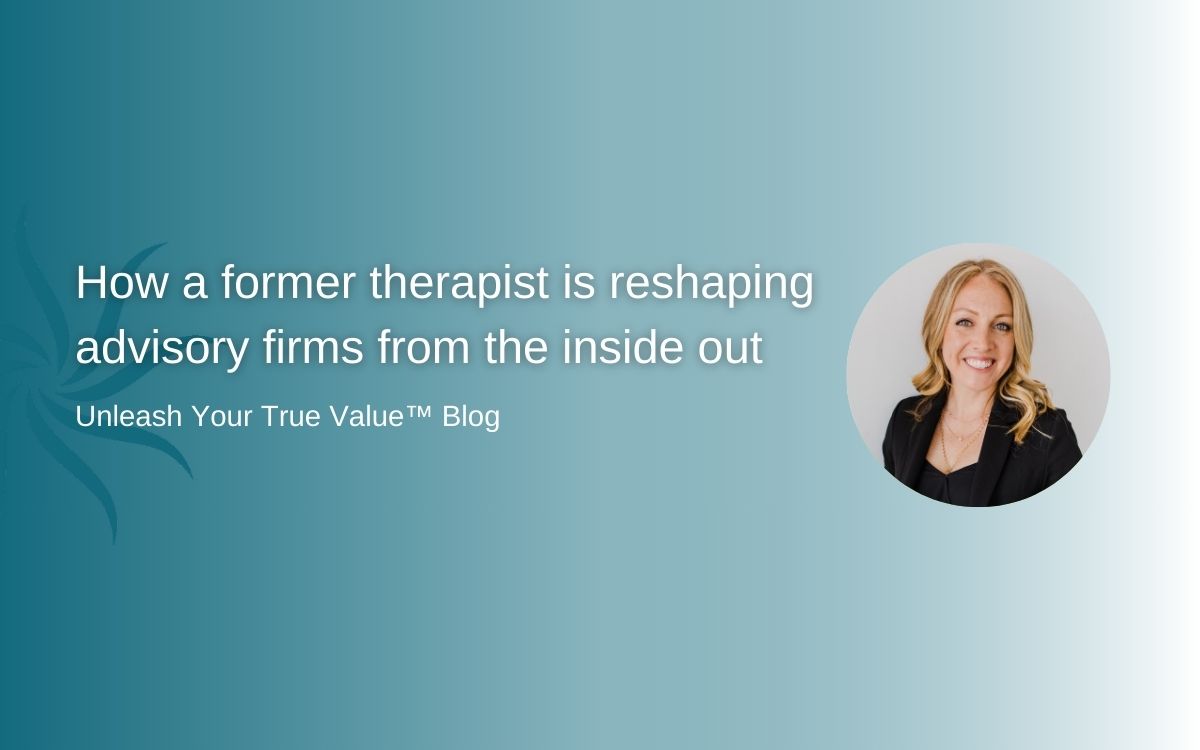
Ashley Quamme didn’t plan on a career in financial services. She began her professional journey as a licensed marriage and family therapist, specializing in couples and family dynamics. For over a decade, she supported clients through emotionally complex experiences, work that was both meaningful and, eventually, deeply draining.
I had a fascinating conversation with Ashley on the Unleash Your True Value® podcast about the burnout that ultimately became a turning point. While she had always been passionate about her work, she began to feel limited by the constraints of the mental health system and found herself craving something different. She wanted to continue serving others, but in a way that allowed her to be more creative, energized, and aligned with her evolving goals.
That clarity led her to explore the growing space where money and psychology intersect. With encouragement and insight from her husband, a financial planner, Ashley recognized a recurring pattern: many of the couples she had counseled were struggling with money; not just the numbers, but the emotions and beliefs behind them.
She began exploring financial therapy and eventually earned a graduate certificate in the field. What started as curiosity quickly evolved into a calling. Today, Ashley is the founder of Beyond the Plan, a consulting practice that partners with advisory firms to provide fractional financial behavior officer (FBO) services. In this innovative role, she works alongside financial advisors to deepen their understanding of client behavior, emotional drivers, and relationship dynamics that impact financial planning. Her approach brings clarity to the human side of money, the beliefs, habits, and interpersonal dynamics that spreadsheets and forecasts alone can’t solve.
Making the leap into this new space wasn’t without uncertainty. For a time, she wrestled with how to clearly articulate the value of her work in an industry that traditionally prioritizes data over dialogue. But after attending the SHIFT Behavioral Finance Conference, Ashley left with a renewed sense of direction. She realized she didn’t need to fit into an existing role, she could create her own.
That clarity led to action, and soon after, she landed her first advisory firm client. Since then, Ashley has continued to grow her practice by leaning into the unique strengths she brings: clinical insight, deep empathy, and a bold willingness to build something new.
For women navigating their own career inflection points, Ashley’s story is a reminder that burnout can be a turning point, not just an end. Slowing down, tuning in, and exploring what keeps us stuck often leads to the most authentic, rewarding next chapter.
Dare to be bold because clarity often follows courage.